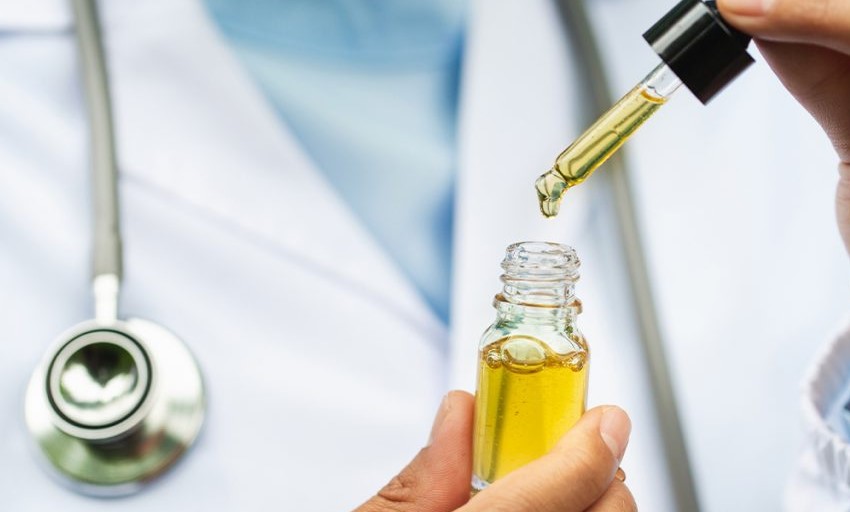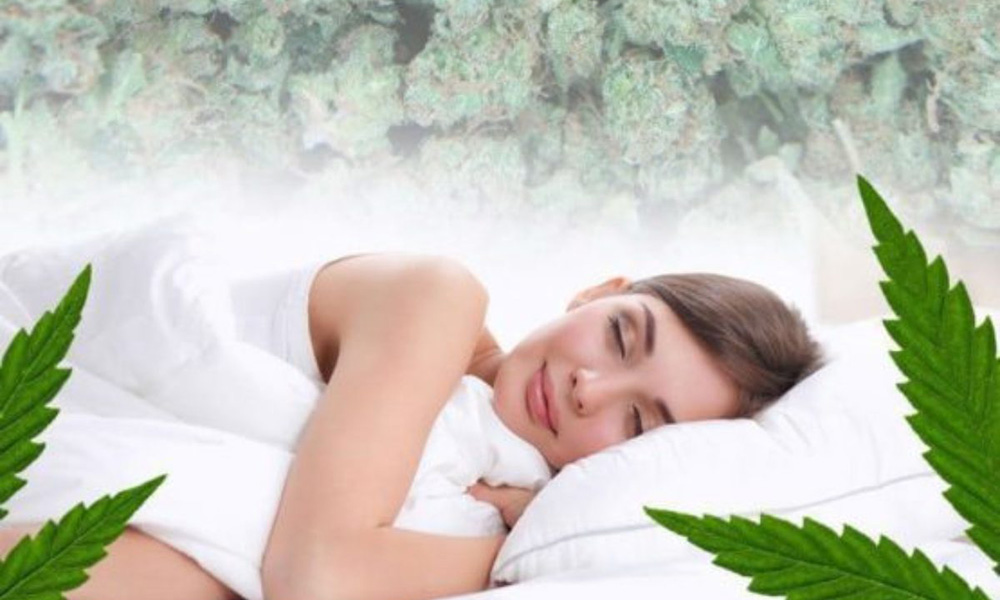Non classé
Cannabis for Sleep: How It Affects Insomnia
Over-the-counter medications are not as effective against sleeplessness as prescription drugs, and many people who suffer from sleep difficulties use prescription sleeping pills. Sleep disorders affect up to 40% of Canadians and 30% of Americans, so it’s no surprise that insomnia is one of the most common reasons for medical cannabis prescriptions in legal nations. The second most common reason? Pain, which frequently causes sleeplessness. And sleeplessness has a variety of effects on your memory, weight, creativity, heart rate, and stress levels.

Getting awakened from your slumber might have terrible effects on your quality of life. Cannabis has been used as a sleep aid for millennia due to its’ relaxing effects, and it’s this functionality that has led many patients to seek marijuana.
CB1 receptors are involved in sleep regulation, according to studies dating back to the 1970s. THC (tetrahydrocannabinol) has been found to impact CB1 receptors and, in some circumstances, boost deep sleep while reducing REM sleep over time, changing and adjusting our bodies’ resting patterns. Whether or Not It’s True That…
So, will cannabis help you sleep?
It all depends. It’s been verified that cannabis has an uncanny ability to relieve stress and help you relax physically. Studies have shown that cannabis can assist people with chronic pain, insomnia, multiple sclerosis, fibromyalgia, PTSD, and other sleepless diseases.
Cannabinoids, such as CBD and THC, affect numerous bodily functions via the endocannabinoid system (ECS), including sleeping patterns, the duration of REM cycles, falling asleep speed, and even pain relief that aids in sleep.
CBD (cannabidiol) is an amazing, non-high-inducing solution for a variety of other medical problems, but it appears that THC is at the center of the drowsy effect. Why? THC works on your CB1 receptors, which are involved with sleep regulation and pain relief as well as assisting you in getting to bed.
How does cannabis affect your sleep?
Sleep is a crucial part of our relaxation, reset, and rest system — and it has an impact on almost every other aspect of our daily lives. When that system is off — whether you’re having difficulties falling asleep, staying asleep, or obtaining deep sleep – everything else goes out the window.
For example, difficulty getting to sleep due to chronic pain issues, or struggles with feeling rested due to PTSD nightmares are different issues, and studies suggest that unique approaches are required for every situation.
Some (limited) studies over the years have discovered that strains heavy in CBD don’t have much of an effect on sleep by themselves. THC-heavy strains are the most effective in helping you fall and stay asleep, but have also been rumoured to reduce the amount of REM sleep you get. This, in turn, reduces the amount of time you spend dreaming (while helping you spend more time in deep sleep).
Some scientists suggest that short-acting cannabinoids may initiate sleep better while longer-acting cannabinoids may be better at maintaining sleep — so a solid balance of THC:CBD is often the best option to both get to and stay asleep.
Cannabis and REM sleep
At it’s most basic level, the sleep cycle comprises of four cycles: light, medium, deep, and rapid eye movement (REM) sleep, which we go through throughout the night. All areas of our sleep cycles are focused on resting and resetting various sections of our bodies and assisting in the regulation of bodily and mental functions.
Light sleep is very beneficial to your metabolism, and we spend more than half of our total sleep time in light sleep: when we’re not completely shut off. Deep sleep (or non-REM sleep), on the other hand, is all about resetting the body: repairing and rebuilding muscles, growing tissues, and bones, as well as strengthening the immune system.
The deepest sleep of three phases, REM (rapid eye movement) sleep aids in the management of emotions, memory processing and “clearing” short-term memories: it resets the brain. As we get older, however, we spend less time in REM sleep and deep sleep and rely more on their therapeutic and restorative advantages.
Studies have shown that THC-rich cannabis strains suppress REM sleep. This may be beneficial to PTSD sufferers since it reduces their dreaming and nightmares. For everyone else, not so good.
REM sleep deprivation has been shown to be linked to emotional instability and difficulty in forming memories (never mind that many people have trouble recalling them). That being said, those who suffer from sleep or mood issues frequently spend too much time in REM (and not enough time in deep sleep), so cannabis is useful for keeping those cycles stable.
Cannabis can help people with other sleep issues, such as insomnia and nightmares, to sleep longer, ease their nighttime terrors, and assist them in returning to sleep if they wake up because they are more calm. It all depends on how slow you go with your experimenting.
Indica or sativa for sleep?
Indica and sativa are two types of cannabis plant that have varying origins and impacts, as we’ve previously stated on our website.
Because of the increased amounts of THC, indica is still thought to be more sedating and soothing, while sativas are seen as more daytime strains due to their energizing and uplifting qualities combined with CBD.
Of course, hybrid vehicles make things more challenging for both the manufacturer and the buyer, but they also allow you to choose exactly how you want your vehicle to feel and relieve you after a little trial-and-error.
Explore In-Depth: CBD vs. THC

For sleeping difficulties, many cannabis industry experts will propose indica cannabis, but it’s possible to “overdose” on THC and wake up feeling groggy and almost hungover. Strains with less than 20% THC are advised by doctors.
It’s also been suggested that the reason THC is more useful as a sleep aid is due to indica strains’ terpene qualities. The terpenes “aromatic fingerprint” modify the expression of each souche, emphasizing certain attributes such as antibacterial, relaxing, or uplifting. Read our article to learn more about how terpenes influence cannabis strains.
Which cannabis helps you sleep?
The best cannabis strains, according to a 2015 review of current cannabis research, were those containing equal parts THC:CBD because they balanced peaceful sleep without causing memory problems. Strains with higher levels of THC had some light memory issues in the morning (but also increased deep sleep), while strnages with CBD alone increased wakefulness.
Best cannabis for sleep without getting high
Some people require assistance sleeping because pain keeps them up, while others simply have trouble sleeping. You can play around with the THC:CBD ratio in your strains and ways of ingestion based on what you’re dealing with. Getting “high” isn’t always required.
In our cannabis oil vs dried cannabis piece, we discussed how cannabis oils are more quickly and completely absorbed into your body than smoking, whereas edibles take longer to work than vaping or smoking but provide longer-lasting relief. Some users discover that a combination of oil and edible allows them to fall asleep faster while others prefer a vape pull to sleep.
You’ll be relieved to learn that a 2004 study on chronic pain discovered that THC-dominant and balanced THC:CBD reduced pain sensations while improving sleep quality (but had less of an impact on the length of sleep). Other research looking at the relationship between pain and sleep in persons with multiple sclerosis, fibromyalgia, and rheumatoid arthritis also confirmed that an equal THC:CBD strain improves sleeplessness, daytime tiredness, and sleep quality in both types of patients.
Cannabis withdrawal sleep problems
You may get “REM rebound” if you quit using cannabis as a long-term user. This is a time when your dreams become more vivid, your sleep quality deteriorates, and you have more sleeping issues. Some experienced users also claim that not only do the dreams return in full force, but they can be quite distressing at first, resulting in night sweats.
It’s uncertain whether your sleep will “level out” after quitting long-term cannabis use, and additional research is needed on the topic.
Which delivery method is best?
Begin by determining how you usually consume cannabis. Keep track of your response times to various techniques and strains, and think about the difficulties you have sleeping. Second, understand that there is no single greatest approach — only the finest one for you.
As a reminder,
- Dried cannabis can be vaped or used in edibles via butters and oils. The effects are felt rapidly, and microdosing is advised when learning to fall asleep. Experiment with just one or two small puffs until you see how it affects your ability to nod off, and do it preferably on the weekend so you don’t wake up groggy if you overate it.
- Oils are ingested, injected, or used as edibles. Unlike smoking since it goes straight into your circulation (if you place it under your tongue), oils’ impact is more powerful and immediate. Because the effects are powerful and long-lasting, smaller doses are suggested at first.
- Edibles are also controversial among doctors because of the issue of dosage. If you’ve discovered a consistent, high-quality strain in an edible that you know exactly how you respond to, it’s the ideal way to utilize edibles for sleeplessness. Especially if your primary concern is remaining asleep since they last longer than all the other options.
Some cannabis strains may make you feel “high,” such as slower time, enhanced senses, or euphoria, while others simply calm you. It will take time and a dose of interest to discover the perfect one for you.
Whatever approach you go with, make sure to try it at least one hour before bedtime so that your body has time to adjust and limit the amount of excitement you feel.
How to dose cannabis at night time as a sleep aid
When you’re first starting, the ideal approach to dose is to start low and go slow. Keep in mind that
- When you inhale cannabis through a vaporizer or smoking, the high is quick in and out, with effects lasting around 2-3 hours. It’s easier to manage overall, but the effects don’t last all night. If you wake up during the night, you may always take another dose to help you fall asleep again.
- Cannabis oils applied under the tongue are rapidly absorbed and remain in your body for longer than inhalation, but not as long as ingestion. This is the perfect balance between inhalation and ingestion.
- Cannabis oils can be absorbed via eating cannabis salads, teas, or other edibles and take time to leave your body after ingestion. This may be beneficial for individuals who have issues sleeping.
Patients have reported that aged cannabis, often known as “decarbed” cannabis, is 5 times more calm, sedating, and long-lasting. They say that the greatest sleep they’ve ever had was after smoking older cannabis containing degraded cannabinoids CBDA into CBD and THC into CBN over time. Patients may also speed up the creation of more CBN by baking their dried marijuana at specific temperatures (320F for 90-120 minutes for optimum results).
In tests comparing pharmaceutical sedatives and CBN, they’ve discovered that the amount of CBN in half the dose of a pharmaceutical is comparable to a mild pharmaceutical in terms of sedation. Finding and/or producing CBN will be the only problem.


